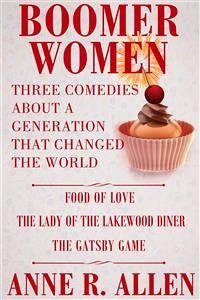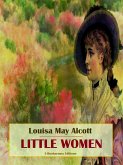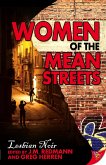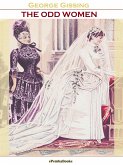The Leaders of the Twenty-First Century was the original title for the manuscript that branched into three and became Food of Love, The Lady of the Lakewood Diner and The Gatsby Game. It's a terrible title, of course, because it sounds too dry and pretentious for a bunch of comedies.
But the phrase has excellent comic credentials. It comes from Mickey Mouse himself. The original Mickey Mouse Club TV program always signed off with the inspiring proclamation that the show was "dedicated to you, the leaders of the twenty-first century!"
When my little girlfriends and I giggled in our basement "rec rooms," mesmerized by the addictive new show, it never occurred to us the announcer wasn't talking to us as much as to our brothers. We didn't see any women leaders around us, but somehow, the magic of Disney was going to propel us all to new heights. My best friend planned to be a doctor and I wanted to be a famous writer. Or maybe princess of the world.
The heroines of these three novels, Congresswoman Rev. Cady Stanton, Princess Regina of San Montinaro, diner owner Dodie Hannigan Codere, rock star Morgan le Fay, and sporting goods CEO Nicky Conway are powerful yet vulnerable (and I hope funny) women who represent those Baby Boomer women who watched the Mickey Mouse Club with me.
Our mothers, who fought WWII on the home front only to be lured out of the workplace to a life of suburban housewifery, often saw our generation as entitled and self-involved. But as my character Dodie Hannigan said in the first version of the manuscript:
"We're called Boomers, but it wasn't us that did the booming—that was our parents. We just showed up nine months later and got plunked in front of those brand new TVs."
We were born at the dawn of the television age to become Madison Avenue's most coveted "target demographic." Advertising campaigns and kid-centric programming made us the first generation to be given a collective identity separate from family or community.
And for good or ill, they made us who we have become: women who have demanded to be treated as equals by the other half of the human race.
I know it's still something of a taboo to write novels—especially romantic comedies—about women "of a certain age," but Boomer women have been breaking rules since the Mickey Mouse Club proclaimed our destiny. I hope you'll enjoy their stories.
Anne R. Allen
Los Osos, CA., 2014
But the phrase has excellent comic credentials. It comes from Mickey Mouse himself. The original Mickey Mouse Club TV program always signed off with the inspiring proclamation that the show was "dedicated to you, the leaders of the twenty-first century!"
When my little girlfriends and I giggled in our basement "rec rooms," mesmerized by the addictive new show, it never occurred to us the announcer wasn't talking to us as much as to our brothers. We didn't see any women leaders around us, but somehow, the magic of Disney was going to propel us all to new heights. My best friend planned to be a doctor and I wanted to be a famous writer. Or maybe princess of the world.
The heroines of these three novels, Congresswoman Rev. Cady Stanton, Princess Regina of San Montinaro, diner owner Dodie Hannigan Codere, rock star Morgan le Fay, and sporting goods CEO Nicky Conway are powerful yet vulnerable (and I hope funny) women who represent those Baby Boomer women who watched the Mickey Mouse Club with me.
Our mothers, who fought WWII on the home front only to be lured out of the workplace to a life of suburban housewifery, often saw our generation as entitled and self-involved. But as my character Dodie Hannigan said in the first version of the manuscript:
"We're called Boomers, but it wasn't us that did the booming—that was our parents. We just showed up nine months later and got plunked in front of those brand new TVs."
We were born at the dawn of the television age to become Madison Avenue's most coveted "target demographic." Advertising campaigns and kid-centric programming made us the first generation to be given a collective identity separate from family or community.
And for good or ill, they made us who we have become: women who have demanded to be treated as equals by the other half of the human race.
I know it's still something of a taboo to write novels—especially romantic comedies—about women "of a certain age," but Boomer women have been breaking rules since the Mickey Mouse Club proclaimed our destiny. I hope you'll enjoy their stories.
Anne R. Allen
Los Osos, CA., 2014









